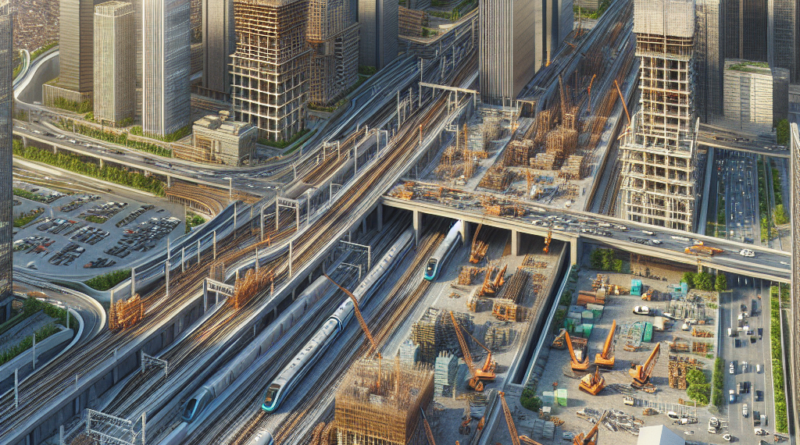Record €33 Billion Railway Construction Project in Italy: A Game Changer for the Economy
Recent Railway Disruption in Italy Unveils Long-standing Issues
The recent halt of railway operations due to issues at the Rome junction has highlighted the persistent problems plaguing Italy’s railway infrastructure.
On Wednesday, October 2, an external contractor’s error caused a total meltdown of train services, resulting in numerous cancellations and hours of delays.
Such incidents are increasingly untenable in a modern country.
A single act of negligence triggered a cascade of failures leading to significant inconveniences for travelers.
In response, RFI has suspended the contract with the contractor responsible for the mishap.
Despite these disruptions, Italy’s railway system is poised for transformation.
Over the coming years, it is expected that extensive modernization projects will enhance efficiency, hopefully preventing similar occurrences and ensuring timely train services.
Significant Investments in Italian Rail Infrastructure
Ongoing investments, both for awarded contracts and those to be secured by year-end, amount to €33.2 billion, as recently indicated by RFI, the company under FS Group responsible for managing the national railway network.
Among these funds, €9.8 billion comes from the National Recovery and Resilience Plan (PNRR), with an additional €11.2 billion slated for disbursement on railway projects, which includes €4.73 billion funded by the PNRR.
In total, RFI will receive €24 billion from European funds for infrastructure upgrades, with close to half—47%—allocated to southeastern construction sites.
Major projects include high-speed lines from Naples to Bari, Salerno to Reggio Calabria, and Palermo to Catania.
Enhancing High-speed Connections Across Italy
RFI’s primary objective is to expand high-speed connections throughout Italy.
Most projects are concentrated in the South, historically neglected and equipped with outdated infrastructure.
The ongoing work includes three vital high-speed rail corridors: Naples-Bari, Salerno-Reggio Calabria, and Palermo-Catania.
Significant progress has been made on the Naples-Bari line, with projections suggesting it will be operational by 2027, effectively halving travel times between the two cities.
Additionally, major developments are underway for the Palermo-Catania-Messina line, extending 178 kilometers with investments exceeding €11 billion.
The Salerno-Reggio Calabria link is crucial, particularly for freight transport to and from the Gioia Tauro port, with the first construction tender, worth €2.16 billion, launched in 2022.
Heading north, the high-speed Verona-Padova project is also making headway.
This 76.5-kilometer stretch aims to significantly enhance connectivity in eastern Italy.
Once completed, the Milan-Venice route will be modernized and streamlined, improving not only passenger transport but also cargo logistics, integrating with other ongoing projects like the Terzo Valico dei Giovi and the Brenner Base Tunnel that connects Italy to Austria.
Such extensive construction projects indicate a revitalization of Italy’s railway system, portraying a hopeful future for enhanced connectivity and reliability.




